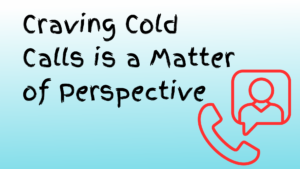
Blog
Notes:
Are you a sales or solutions engineer who’s not a native English speaker? Do you want to communicate well with your clients, avoid telling too much technical information, and make them understand the simplest way possible? Then you are tuning in to the right episode. Daniel Caffarey has been exposed to sales work since he was 16, worked as a language teacher for years, and now decided to help sales and solution engineers enhance their communication and English skills. Daniel also teaches his clients how to actively listen without zoning out during a meeting and presentation.
Dan Caffarey worked as a business English and communication teacher for many years travelling around the world. His love for teaching and helping made him decide to coach solutions and sales engineers who are not native English speakers to communicate with their clients better, sound more natural, and actively listen without zoning out.
Key Takeaways:
- How Dan started working at 16 selling and cold calling a hundred people every day
- The next job that sustained him until his 20s
- His work of over 6 years that allows him to travel to different countries
- Why Dan has never found stability since he changed careers
- The three parts of business communication and how it differs from regular communication
- Why Dan chose to work with sales engineers recently
- The difference between sales engineer and sales rep in terms of customer communication
- The common communication issues sales engineers call him for help
- What happens during Dan’s coaching session with his clients
- How Lingua Franca helps people communicate in their different native languages better
- How functional language can help you politely interrupt someone who’s talking
- The type of speakers Daniel doesn’t work with
- How to actively listen during a meeting without zoning out
- Ramzi shares the biggest challenge he’s experienced around communication
Quotes:
“I was selling digital advertising. You can imagine a time when digital advertising wasn’t such a thing, right? It’s not as complex as the technical role of a sales engineer, for sure.” –Dan Caffarey
“My position is that I help out sales engineers and solution engineers in their communication skills. Whether it’s improving their presentation skills or the other kind of communication skills you need to be good at business.” –Dan Caffarey
“It’s difficult. People are always chasing that sort of dream of the work-life balance and having your own business, sitting on a laptop at the beach, but it doesn’t always work out like that. I would say no regrets, but sometimes I think back and like I look at it through rose-tinted glasses. What it was like working in an office.” –Dan Caffarey
“Being timid is not necessarily a good thing. You want to come across as a professional, and you’re trying to build a trusting relationship with this kind of person. So the words that you choose, and the way that you speak. They’re part of communication. So it is something that you need to work on.” –Dan Caffarey
“You’re trying to communicate your technical background in a simple way. There’s a lot of changing how you speak, you can’t just try and depart your technical knowledge without thinking about the the audience of the message, the kind of people who are going to be receiving it.” –Dan Caffarey
“For sales engineers, we’re not trying to close a deal. Specifically, we are trying to get a commitment from them that they understand how we solve their problem. We’re not asking anybody to part ways with their money, we’re not asking them to make a decision.” –Ramzi Marjaba
“The temptation for people when they think about business communication is to overcomplicate, that is the opposite of what you want, especially when you’re speaking with someone and English is not their first language. It does add an extra level of complication. So having the foresight to think carefully about who you’re communicating with, and how to tailor your message to that person.” –Dan Caffarey
“I was speaking to a lady yesterday. And she told me that the problem she finds is that when she’s in a meeting with the native speakers, they’re too eager to talk and make decisions about things. She doesn’t think they think things through enough. What she really wants to be able to do is to paraphrase back and to ask good clarification questions, so that she can make an informed decision.” –Dan Caffarey
“They call it active listening, how to sort of be quiet and engaged rather than rushing to interrupt. Another part is feedback. When other people are talking, it seems simple, but obviously, if you’re from a different culture, you maybe don’t know how to give off those signals when other people are talking to show that you’re interested.” –Dan Caffarey
Links from the show:
About Language: Tasks for Teachers of English by Scott Thornbury
Lingua Franca Curriculum
Lingua Franca: Examples | What is a Lingua Franca? – Video & Lesson Transcript | Study.com
Connect with Dan P. Caffarey on LinkedIn: Dan P. Caffarey | LinkedIn



